Remember lockdown when you couldn’t get alcohol and cigarettes; when you felt trapped in your home? Perhaps it didn’t leave you with a high regard for the law or our lawmakers. Perhaps you felt few qualms getting your hands on booze and baccy any way you could, or breaking curfew when the opportunity arose.
When laws are seen to lack legitimacy, they are widely flouted. It’s a lesson we would do well to remember if we are to give our endangered wildlife a better shot at survival, reckons Lara Rall, Deputy Programme Manager with the World Wide Fund for Nature (WWF) South Africa.
Rall states that South Africa has no shortage of laws to protect wildlife.
"But behaviour that was deemed illegal was not always viewed as wrong or bad by all people in society," says Rall, referring to various Covid rules and regulations that many did not agree with. In the same way, she said, "hunting inside a protected area, which is illegal to do without the necessary permits, was not always seen as wrong or bad, no matter what the law says.”
"Our legislation,” she added, was “only as good as the paper it’s written on, unless it’s legitimate in the eyes of the people it’s supposed to govern” and provided “enforcement is swift, fair and certain”.
Rall, who was among the panellists at the latest Tipping Points webinar hosted by Oppenheimer Generations Research and Conservation (OGRC) on November 30, made the point that South Africa has no shortage of laws to protect wildlife.
“But our legislation is only as good as the paper it’s written on unless it’s legitimate in the eyes of the people it’s supposed to govern” and provided “enforcement is swift, fair and certain”, said Rall.
Grappling with the topic, “A Thin Green Line: Balancing Customary and Traditional Law in Wildlife Trade”, the panellists agreed that on the metrics above, South Africa does not score well. Quite how this came to pass and what should be done to make things better was, however, where perspectives diverged.
Challenges
Organised and wildlife crime expert Julian Rademeyer and conservationist and community relations fundi Vusi Tshabalala stressed, respectively, the breakdown of high-level governance, and a failure to engage properly with people on the ground.
The webinar, the 18th in the Tipping Points series, also served to publicise the recently launched Khetha 2024 Story Project. Supported by USaid and WWF, the initiative seeks to deepen media coverage of the illegal wildlife trade, with a particular focus on the Greater Kruger Park area, through story grants, mentorship and webinars.
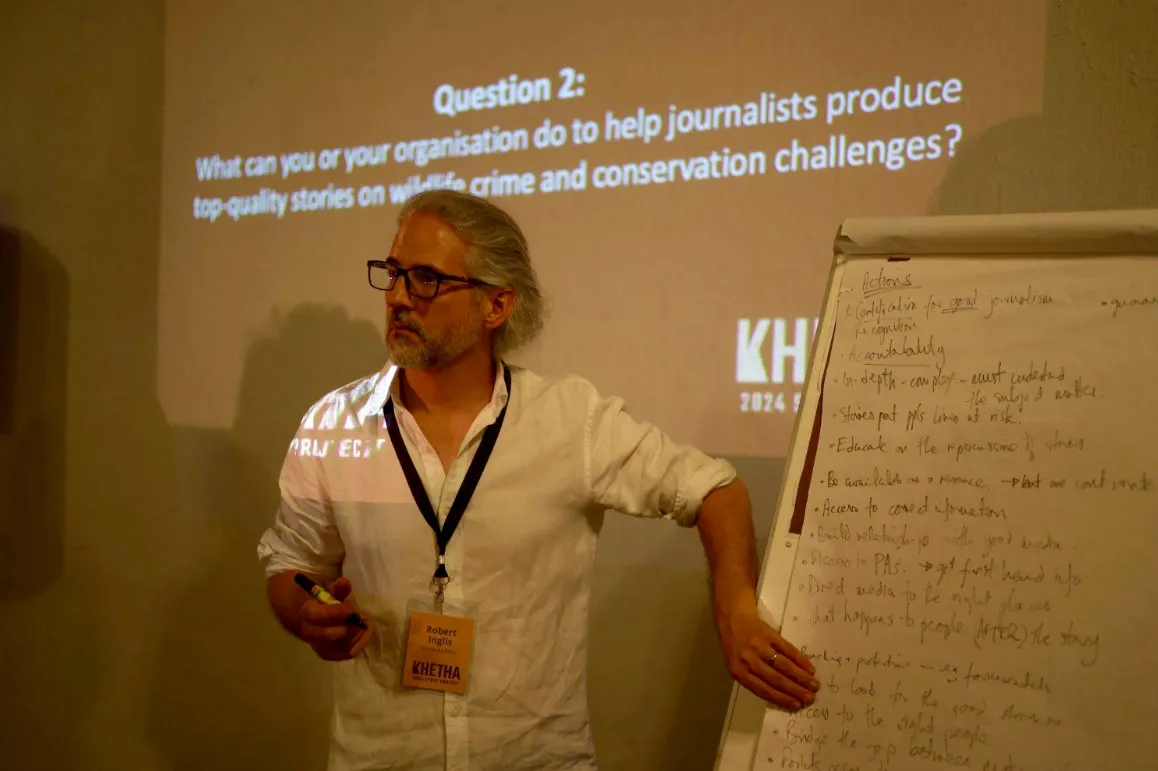 At the launch of the recent Khetha 2024 Story Project, Rob Inglis, director of Jive Media Africa, recorded key responses to questions about how the media could do a better job reporting on wildlife crime and conservation challenges in the Greater Kruger area. (Photo: © WWF | Jonathan Inglis)
At the launch of the recent Khetha 2024 Story Project, Rob Inglis, director of Jive Media Africa, recorded key responses to questions about how the media could do a better job reporting on wildlife crime and conservation challenges in the Greater Kruger area. (Photo: © WWF | Jonathan Inglis)
Rall said that while good laws and enforcement were necessary for a functioning society, these alone would not stop wildlife crime. For this, we needed to design responses that were in touch with people’s realities. This meant including more people who lived near parks and protected areas — those most affected by poaching — in conversations about conservation.
What leads people to poach or trade illegally in wild animals and plants?
Rall doubted economic deprivation provided an adequate explanation.
“Poverty alone does not drive crime. Countries where you have high overall levels of poverty do not necessarily have higher levels of crime. It’s places that have high levels of income inequality that typically have the highest levels of crime.”
She believed a breakdown of social norms, a lack of jobs and economic opportunities, especially for the young, as well as corruption, all played a major role.
Read more in Daily Maverick: Snaring in Kruger National Park spikes more than 200% amid socioeconomic crisis
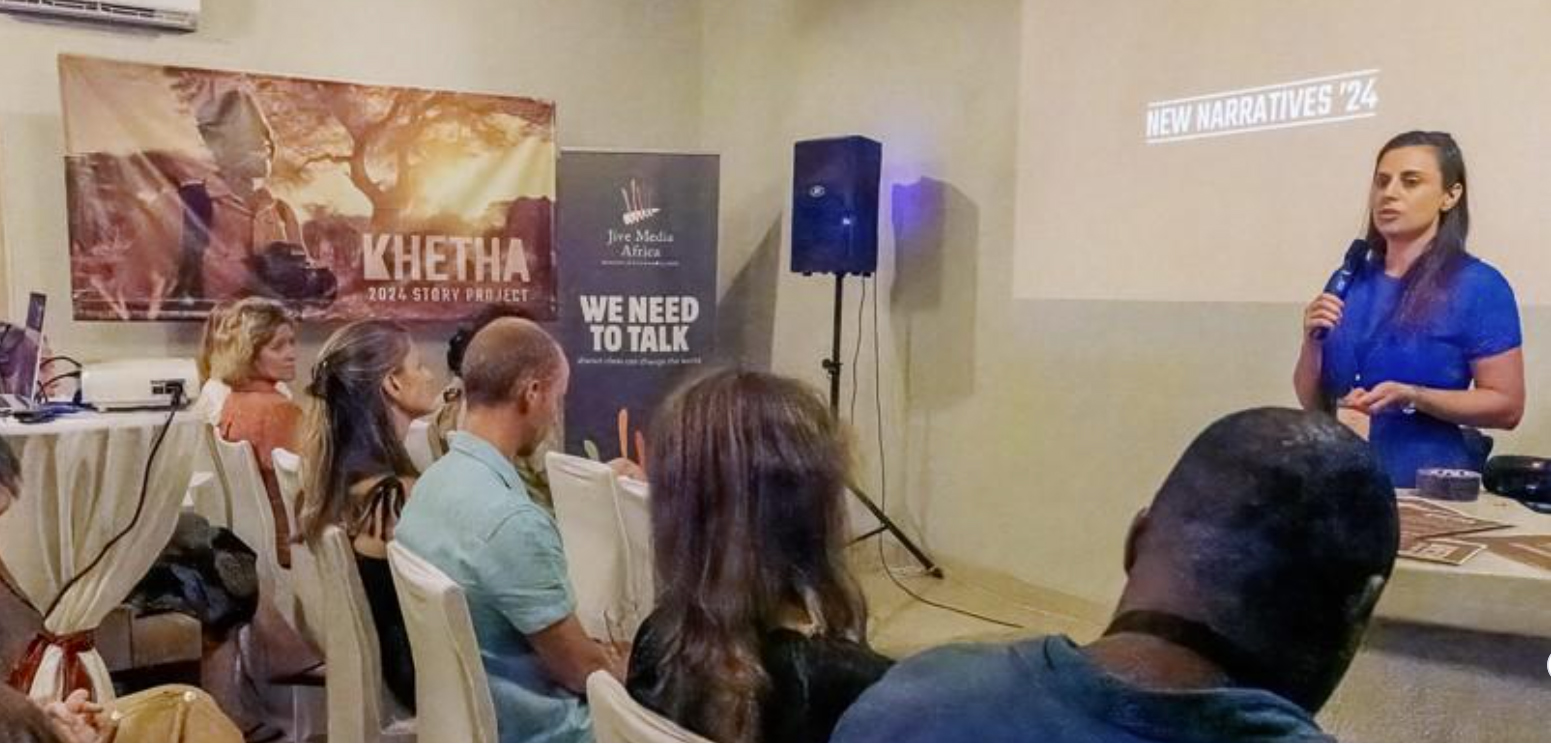 WWF SA Deputy Programme Manager Lara Rall says there is an urgent need for more inclusive discussions on wildlife crime and stories in the media that are in touch with people’s realities. (Photo: WWF | Karabo Magakane | Wild Shots Outreach)
WWF SA Deputy Programme Manager Lara Rall says there is an urgent need for more inclusive discussions on wildlife crime and stories in the media that are in touch with people’s realities. (Photo: WWF | Karabo Magakane | Wild Shots Outreach)
Rob Inglis, of Jive Media, who facilitated the webinar, felt this was a complex subject that went well beyond policing and said there was a need for conversations to find solutions.
Rademeyer, who is the director of the Global Initiative Against Transnational Organised Crime’s East and Southern Africa’s research observatory, agreed.
A respected journalist and author of the definitive book on rhino poaching, Killing for Profit, Rademeyer said there were few areas that were black and white. “We are dealing with shades of grey”, and this was often missed in day-to-day media reporting on poaching.
“This is something that touches on almost every aspect of society. It’s about land ownership, poverty and inequality — deep-seated inequality, in one of the most unequal societies. It’s about crime and corruption, social development and history,” said Rademeyer.
He spoke about research work by his organisation in the Greater Kruger area and Mpumalanga which studied illicit economies and documented the convergence of different forms of organised crime, including illegal mining, cash-in-transit heists and poaching.
Linkages
The linkages were “becoming closer and closer”. Yet, so much of the focus on illegal wildlife trade was on the foot soldiers, the people at the bottom — poachers in the parks, who were expendable to the crime networks and syndicates who employed them. Similarly, arrests of thousands of individual illegal miners clogged the courts but little in the way of targeted investigations at the highest level.
“There is no clear strategy at a leadership level on how to deal with organised crime. Across South Africa, most responses seem to be knee-jerk.”
He said a void in governance and law enforcement had allowed organised crime to take root in many of our provinces. It was now reaching “frightening levels” to the extent it posed a “very real and existential threat to South Africa”.
Kruger, he said, was seen by many as a paradise and an insulated wildlife idyll, but the national park cannot be seen outside the broader society.
Exclusion
He agreed with Rall’s comments about the perceived legitimacy of the law, noting that parks had been a source of prestige for the apartheid state and to this day “many black South Africans feel excluded”.
Rademeyer traced the country’s hunting laws to the early years soon after the arrival of the Dutch in the Cape. Over time these laws, along with a stripping of black Africans of the right to hunt and own land, “deepened deprivation of rural communities”. The Game Theft Act of 1991 entrenched game ownership in the hands of few, predominantly private landowners, while hunting for the pot by African communities was criminalised.
Read more in Daily Maverick: Trophy hunting, game viewing both have ecological and economic pros and cons
Inequalities also persisted in the parks in the way some staff were treated. At the same time, millions of rands were being poured into the “war on poaching”, but with little going to “those on the ground whose job it is to curb poaching”.
Tshabalala, an education for sustainable development project manager with the Kruger 2 Canyons Biosphere Region, spoke about the “fence factor” — how South Africa was one of the few countries on the continent where reserves were fully fenced.
Read more in Daily Maverick: The big fence: Historical divisions plague conservation efforts in South Africa
He said in countries such as Botswana, Namibia, Tanzania and Zimbabwe, wild areas were partially fenced or not fenced at all. Animals were free to roam in conservancies, owned by communities who benefited directly from hunting quotas.
‘Not my problem’
“Human-wildlife conflict is huge, but tolerance is higher because they see the benefits. In South Africa, because of the fences, tolerance is very low when (damage-causing) animals come out.” People often felt a sense of exclusion from park — and so whatever happened in a park was “really not my problem; it does not really affect me”, said Tshabalala.
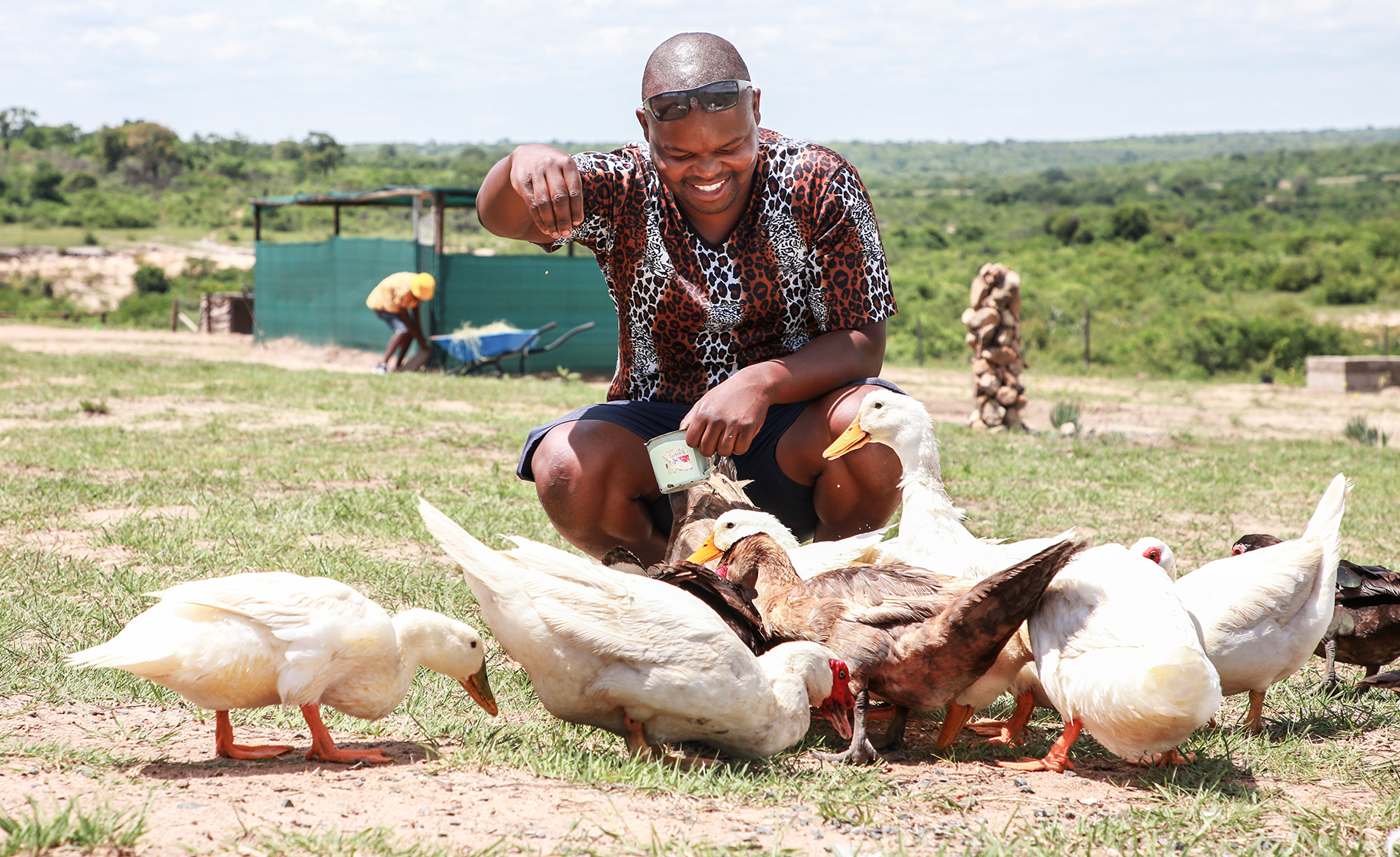 Vusi Tshabalala, an avid conservation champion, reckons that young people who live on the fringes of the Kruger National Park should be benefitting more from protecting wildlife, but sadly, many have turned to poaching for a wide mix of reasons, including the simple need for bushmeat which, he says, should be become more readily available through legal channels. (Photo: © WWF | Warren Ngobeni | Wild Shots Outreach)
Vusi Tshabalala, an avid conservation champion, reckons that young people who live on the fringes of the Kruger National Park should be benefitting more from protecting wildlife, but sadly, many have turned to poaching for a wide mix of reasons, including the simple need for bushmeat which, he says, should be become more readily available through legal channels. (Photo: © WWF | Warren Ngobeni | Wild Shots Outreach)
Drawing on his work with 86 communities and 42 different conservation projects in the Greater Kruger area, he spoke about how many people enjoyed no direct benefits from the park and consequently seldom reported family or neighbours who snared or hunted game.
Red tape, said Tshabalala, also made it onerous for locals to legally hunt for the pot, so instead of sustainable harvesting of wildlife which drew on indigenous knowledge and customs which contributed to conservation, we were seeing an increase in poaching and the illegal wildlife trade, he said.
Responding to a question from the floor, Inglis put it to the panel that the existing legal framework and government policy on wildlife ownership was perhaps biased in favour of private interests.
He spoke of a “massive uptick in snaring and poaching around national parks” as the economy slumped in the wake of Covid, “with people simply trying to survive, to eke out a living”.
In the face of rising unemployment, Rademeyer called for the creation of a wildlife economy that would allow more people to benefit. “Conservation and wild spaces are increasingly under pressure and they don't exist without people.”
Building relationships
Tshabalala stressed that along with addressing issues of ownership of wildlife we needed to build a sense of responsibility. And he wanted to see more effort and more investment into building relationships — something that would not be achieved with laws.
Rall felt we should look beyond laws and treaties and instead seek environmental justice. This included balancing the law with the needs of the people who live with the consequences of laws, while at the same time being more respectful of indigenous knowledge systems and cultural differences.
She also felt that much media reporting on wildlife crime added to the problem. It tended to focus narrowly on poachers, criminalised communities living on the boundaries of parks while ignoring the many complexities at play. This was counterproductive to the efforts of community conservation initiatives by South African National Parks and others, she said.
In this regard, Rall and Inglis shared a few details about the Khetha 2024 Story Project.
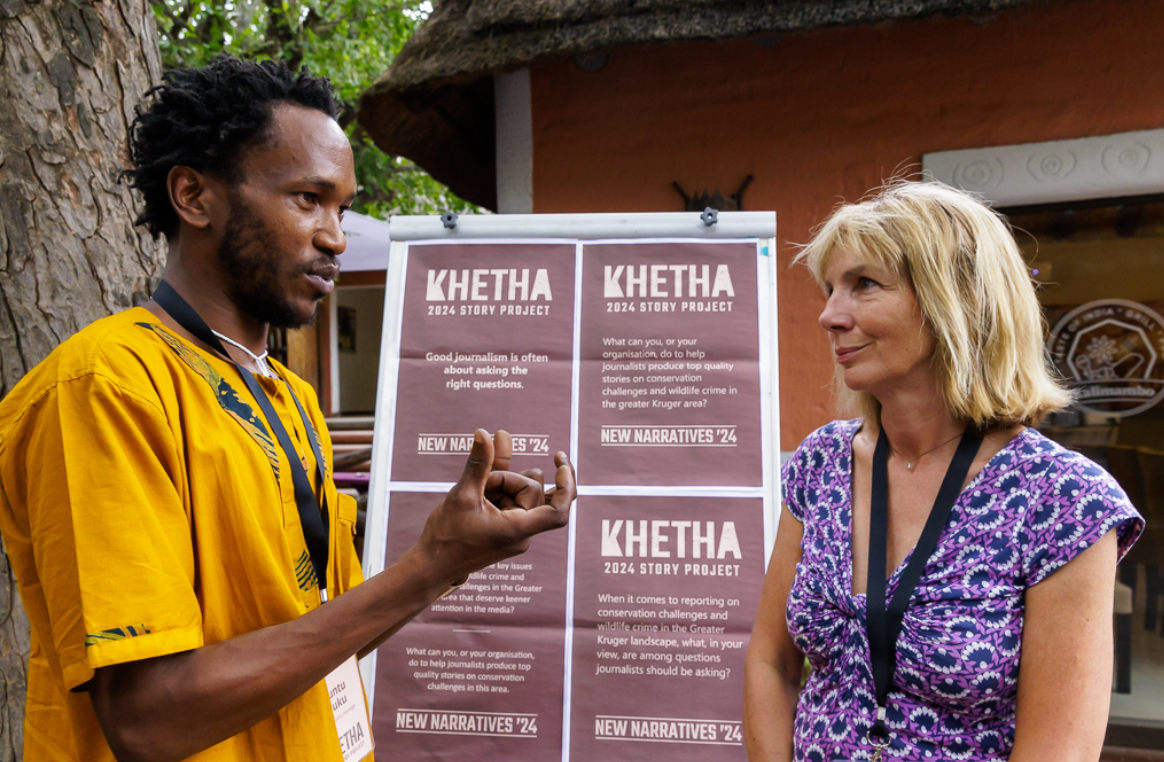 Emerging writer Buntu Duku of Kruger2Canyon News (left) and Harriet Nimo of Wild Shots Outreach had engaging discussions at the recent launch of the Khetha 2024 Journalism Project in Hoedspruit. (Photo: © WWF | Karabo Magakane)
Emerging writer Buntu Duku of Kruger2Canyon News (left) and Harriet Nimo of Wild Shots Outreach had engaging discussions at the recent launch of the Khetha 2024 Journalism Project in Hoedspruit. (Photo: © WWF | Karabo Magakane)
It involves investing in seasoned and up-and-coming journalists to encourage storytelling and making space for diverse perspectives, especially the voices of people directly affected by wildlife crime.
The thinking is that by changing perceptions and creating a deeper understanding of the complexities of wildlife crime, we could better inform approaches to address it, said Rall.
The project, designed by Roving Reporters and Jive Media Africa, includes a series of webinars which shall provide opportunities for seasoned journalists to apply for Khetha story grants. The story grants aim to assist South African and international journalists in reporting on wildlife crimes and conservation challenges in the Greater Kruger area through access to local, on-the-ground knowledge.
Rookie reporters, early career scientists and conservation enthusiasts worldwide are also invited to take part in the Khetha 2024 Story Project by joining Roving Reporters’ New Narratives ’24 team.
For further information contact esther@jivemedia.co.za. DM
Additional reporting by Matthew Hattingh.
Maxcine Kater is an environmental officer at the Department of Forestry, Fisheries and the Environment and a representative of Roving Reporters New Narratives ’24 team.
This story was produced with the support of Jive Media Africa, science communication partner to Oppenheimer Generations Research and Conservation.
https://www.youtube.com/watch?v=REeWvTRUpMk




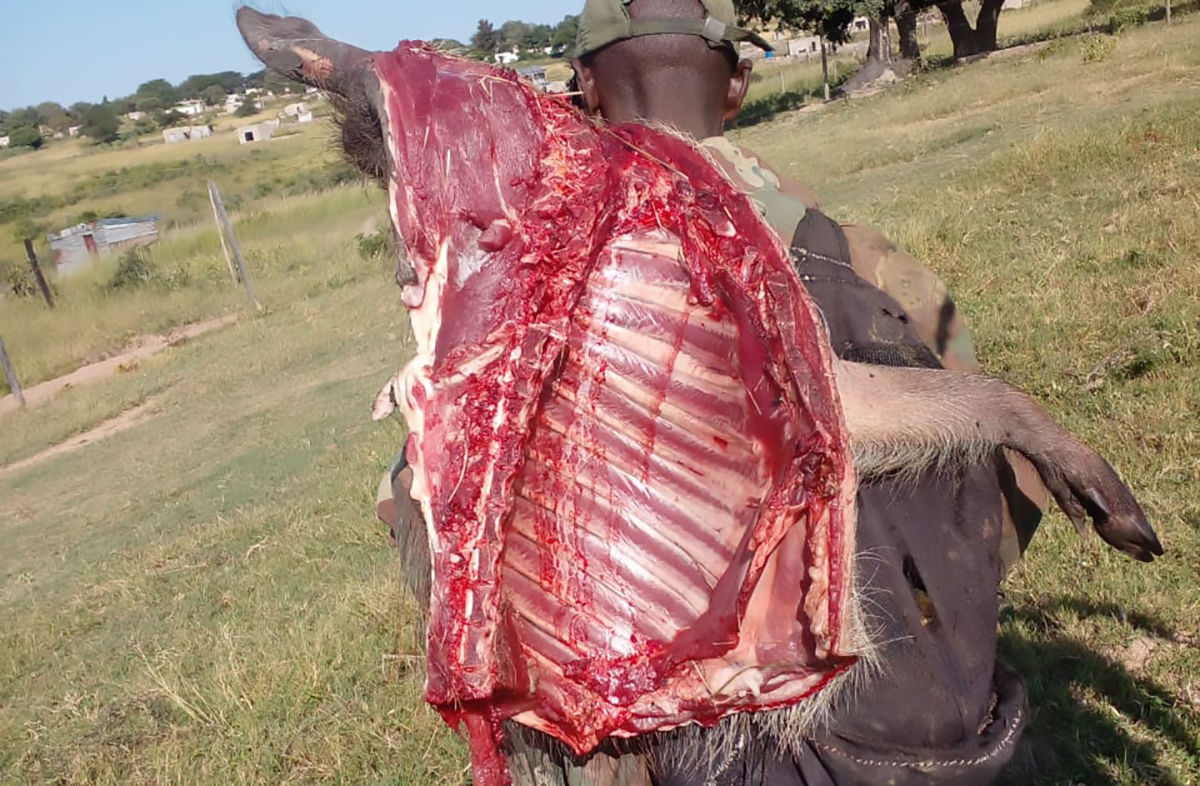 Emerging writer Duku Buntu (left) and Harriet Nimo of Wild Shots Outreach had engaging discussions at the recent launch of the Khetha 2024 Journalism Project in Hoedspruit. (Photo: WWF | Karabo Magakane)
Emerging writer Duku Buntu (left) and Harriet Nimo of Wild Shots Outreach had engaging discussions at the recent launch of the Khetha 2024 Journalism Project in Hoedspruit. (Photo: WWF | Karabo Magakane)